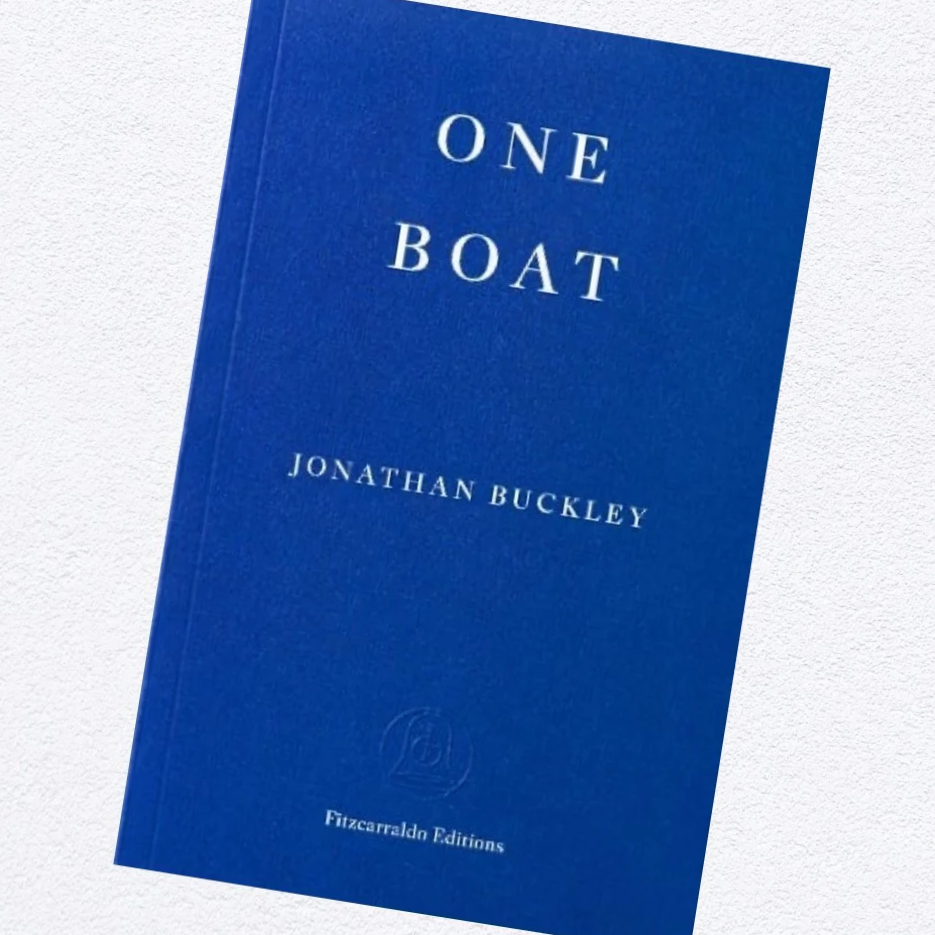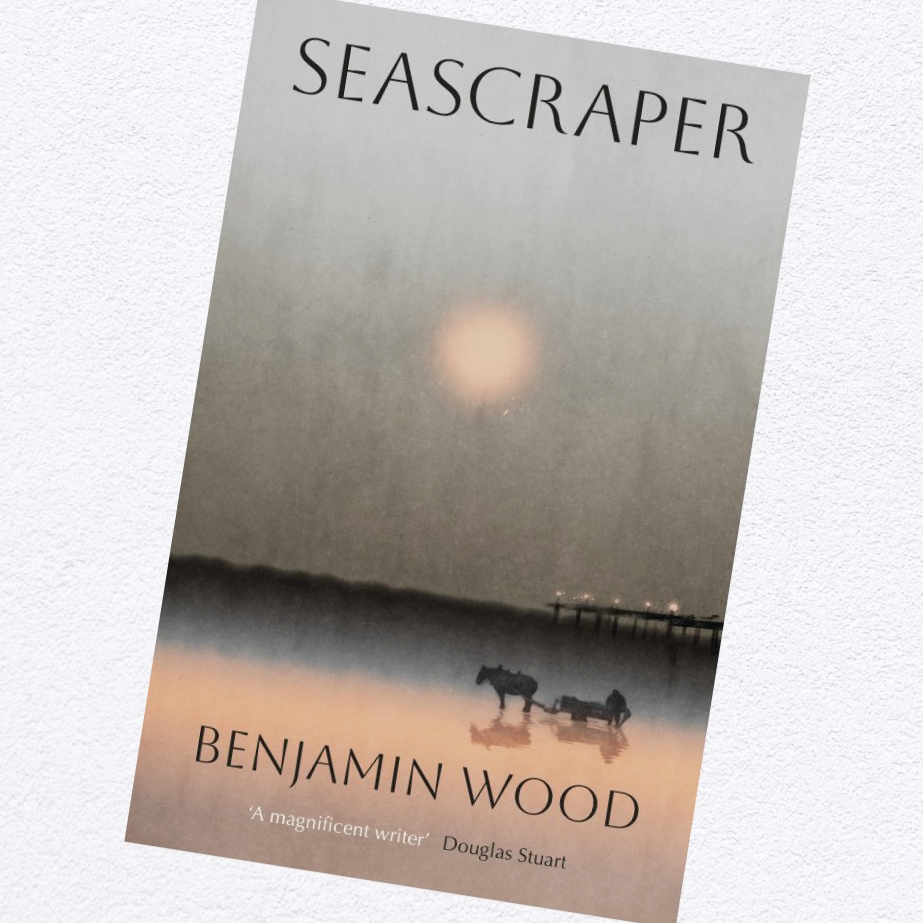
Flashlight (2025)
Flashlight begins with the disappearance of Serk, a Korean émigré and academic, during a walk on along the coast in a small Japanese town with his young daughter, Louisa. While Serk is presumed drowned, Louisa washes ashore hours later, traumatized and unable to recall what has happened. The books subsequently spans decades and continents, as Louisa and her American mother, Anne, struggle to cope with their grief and the mystery of his vanishing. This sits against the complex geopolitical backdrop of the late 20th century, particularly focusing on the lives of Korean immigrants in Japan and the unsettling history of North Korea.
Audition (2025)
Audition is very much a novel of two halves. A cliche, and one which has come up more than once in my recent reading, but never more true than here. In its first part, we are introduced to an unnamed female narrator, preparing for a role in an upcoming play, in which she is notably struggling to nail a key scene. A young man, Xavier, meets her for lunch in an upmarket restaurant, having previously explained that he believes she may be his mother (a seeming impossibility as the narrator has never given birth). They are observed briefly by her husband, Tomas, an art critic, who seems somewhat weary of her affairs and is behaving a little shiftily himself.
The Loneliness of Sonia and Sunny (2025)
The Loneliness of Sonia and Sunny is an epic family saga centring on the lives of Sonia Shah and Sunny Bhatia, two young people from India whose paths intertwine. The story is initiated by a clumsy and half-hearted failed attempt to engineer an arranged marriage between the two by their neighbouring families in India. Sonia, an aspiring novelist who has been studying in Vermont, returns home to India after a deeply troubling relationship in New York with a memorably deranged and controlling older artist named Ilan de Toorjen Foss. She is haunted by this encounter, believing he may have cast a "dark spell" on her (which manifests - seemingly physically - as a ‘ghost hound’ later in the novel). Sunny, a struggling journalist, is working for the Associated Press in New York City, living in Brooklyn with his American girlfriend Ulla. He too returns to his home country, initially to help his friend Satya in his own attempts to secure an arranged marriage.
The Rest of Our Lives (2025)
The Rest of Our Lives focuses on the 50-something law professor Tom Layward, based in New York with his wife Amy and about to see their youngest child Miri off to college in Pittsburgh. We learn early on in the novel that Amy had cheated on Tom over a decade ago, at which point he had privately vowed to leave her after their children had both left home. As they prepare for Miri’s departure, both experience some degree of ‘empty nester’ anxiety and Amy decides to stay home rather than face the emotional trauma first-hand.
The South (2025)
The South is the first book in a planned quartet that centres on a family navigating a period of significant change both in Malaysia and in their own lives. The main events of the novel are set around 1997 and the Asian financial crisis, following the Lim family as they travel from their home in Kuala Lumpur to a dilapidated farm they have inherited in Johor, southern Malaysia. The central plot of the novel revolves around 16-year-old Jay's coming-of-age and sexual awakening. On the farm, he meets Chuan, the son of the farm's manager, and a transformative relationship develops between them over the course of the summer.
Flesh (2025)
Flesh is set over most of the life of one man, István, with its main action taking place in his home country of Hungary, and London. We first meet István as a fifteen-year-old, living with his single mother in a new town. In an unsettling first chapter, István is (initially reluctantly) drawn into a sexual relationship by a much older woman, a friend of his mother’s. This relationship ends in tragedy, with István implicated in the death of her husband and subsequently serving time in a juvenile prison. The rest of the novel jumps forward in time for each chapter, often skipping significant moments in his life and focusing instead on their impact on him. Following a stint in the army during the 2003 war in Iraq, he moves to London where several chance developments lead him to a life of luxury. Up to a point, the novel seems like a classic ‘Rags to Riches’ narrative, but in its later chapters, we see István’s life gradually collapsing around him, and his eventual return to a relatively humble life in Hungary.
The Land in Winter (2024)
The Land in Winter takes place in a remote community in the West Country of England during the famously harsh winter of 1962-63 (known as the ‘Big Freeze’). It focuses on two couples, neighbours separated by a field. Eric Parry is a local doctor, well-established in the community and married to Irene. They’re ostensibly a picture-perfect upper middle class couple, hosting dinner parties and very much conscious of their elevated status in their small community. The farm nearby has recently been bought by Bill Simmons, on something of a whim. He lives there with his relatively modern young wife Rita, who is adapting from her previous party life in the bars and clubs of Bristol. While Bill is also not exactly poor, he’s from an immigrant family (though not obviously) and the status of ‘farmer’ in the 1960s still very much carried an implication of lower social status than the Parrys. While Eric and Bill struggle to connect (or even really contemplate that they would), their wives are both pregnant and begin to form an unlikely bond.
One Boat (2025)
One Boat is told from the perspective of Teresa, a contract lawyer and aspiring author from the UK. She has recently lost her father and is making a return visit to the same Greek coastal town she visited after the death of her mother nine years before. The novel jumps back and forth between Teresa’s encounters with the same characters nine years apart: notably Xanthe, the owner of a cafe she frequents; Niko, a younger diving instructor with whom she had an affair on her first visit but is now married with a daughter; and Petros, a long-time resident also originally from the UK with whom she has lengthy philosophical conversations. There’s also a focus on another Englishman, John, who she met on her first visit and who told her of his anger and desire for revenge for the violent death of his nephew.
Universality (2025)
Universality begins with a long first section written in the style of a journalistic ‘long read’. It recounts the tale of a crime which took place at an illegal rave on a Yorkshire farm, in which the leader of a radical anarchist movement is bludgeoned with a gold bar by a young man called Jake. In the article, presented as a kind of moral parable about class and wealth based divisions in our society, we are introduced to Jake’s mother, a populist ‘anti-Woke’ columnist who goes by the name of Lenny. We additionally meet Richard Spencer, the owner of the farm whose gold bar was used in the crime. He’s a wealthy banker who is presented as symptomatic of the ills of capitalism.
Seascraper (2025)
Seascraper begins by introducing us to Thomas Flett, a young man in a Northern English coastal town in the 1960s who works in the seemingly already slightly anachronistic profession of a “shanker”, using a horse and cart to collect shrimp in often hazardous conditions from a beach littered with “sinkpits”. He lives with his mother, who had him as a teenager and has been shunned by the local community. She relies on him to earn money, which he does through his unsociable, repetitive and physically exhausting work.










